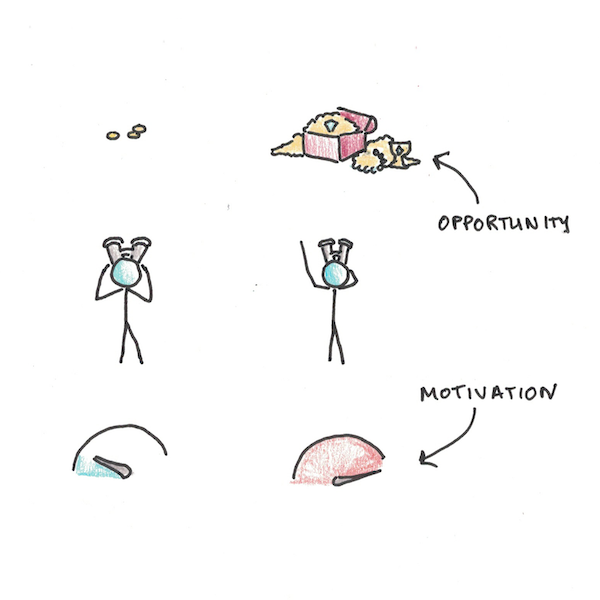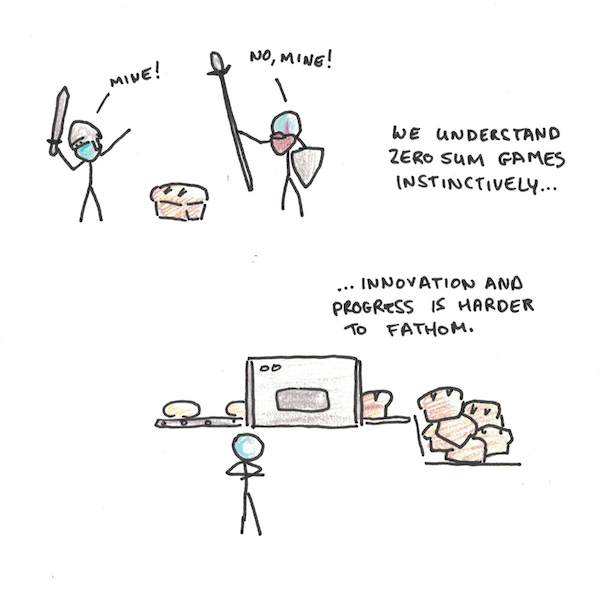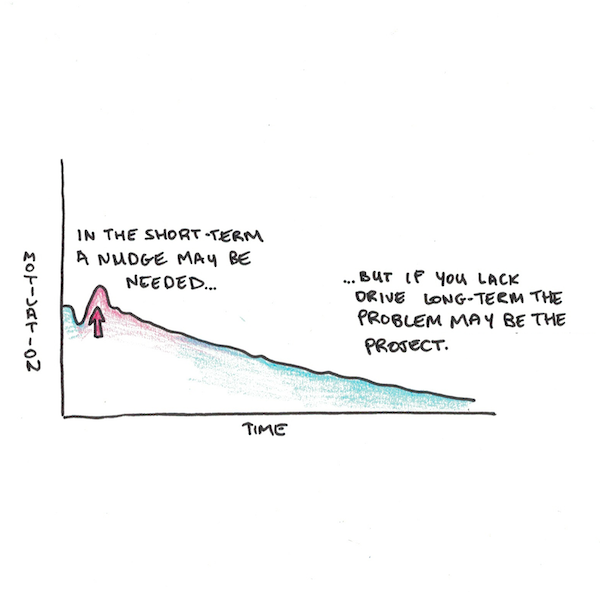Alexey Guzey asks why there is only one Elon Musk:
There are almost 8 billion people on the planet – why is there so much low-hanging fruit? Why is there so much stuff to work on? Why is there only one Elon Musk?
With Tesla recently becoming the most valuable automaker in the world, it’s a good question. How does one person seem to have the energy and talent to simultaneously launch an automobile revolution and actual rockets, while many of us struggle to go to the gym each week?
Musk isn’t alone. Read the biography of any great thinker, entrepreneur or leader. One quality emerges repeatedly: the extraordinary energy with which they throw themselves into pursuits.
Ben Franklin starting a printing empire, retiring in his forties, inventing the lightning rod and helping write the Declaration of Independence. Marie Curie winning two Nobels while raising children. Thomas Edison’s famed sleep schedule of only four hours per night.
Seeing this trend, it seems hard to deny that your life might be better if you were a little more motivated. Or could there be another side to the story?

Motivation: Rational or Biased?
Theories of motivation tend to come in two flavors:
- Rational. Our motivations reflect our preferences. We’re motivated by visible opportunities. If you don’t feel driven, the problem is a lack of destinations worth driving towards.
- Biased. We’re short-sighted and lazy. Our minds weren’t built for modernity, so we often ignore obvious ways to make our lives better. Boosting your motivation, even artificially, can make you better off.
Rational theories are common in economics. Many economic theories naturally assume we make the best decisions, given our options.
This assumption is often criticized. “Don’t those ivory tower eggheads know that people are irrational? With such a faulty premise, the entire field ought to be thrown out!”
Yet, I’m pretty sympathetic to this premise.
In physics, many problems are simplified in ways that are unrealistic. Irregular bodies are assumed to be perfect spheres. Friction is ignored. Density is uniform. Far from resulting in failure, these simplifications allow for tractable analysis yielding incredibly precise predictions.
Similarly, even if humans are frequently biased, pretending they’re approximately rational still does a pretty good job. In some cases, our mistakes are inherently self-correcting. Even if most investors are biased about the stock market, it only takes a few to spot the error, fix it and make a windfall.
Signaling theories boost the plausibility of rational drives even further. These theories say that we often lie to ourselves about our true motives to look better to other people. Our motivations encode a hidden logic we don’t consciously perceive. The thing you don’t feel motivated to do, but can’t say why, may be for reasons you’d rather not endorse.
If you take this stance, our motivations tend to be rational. Elon Musk is super motivated because he genuinely has great opportunities. The fact that you are hesitant may be owing more to your options than your character.

Is Your Lack of Motivation a Misperception?
Other theories of motivation claim we’re inherently biased.
Sometimes this happens because perfect rationality isn’t possible. There’s always an infinite set of choices. We only know about a small fraction. Rationality is always bounded, so smart decisions necessarily ignore some options.
In other cases, it may be rules of thumb that no longer fit. Modernity differs in substantial ways from the environment that evolved us. Until recent history, life was overwhelmingly zero-sum. There was little innovation or social progress. Ambition was evil because, in most cases, to have more was the direct result of taking from somebody else.
Side note: This recent flip from zero (or negative) sum to positive-sum puts many ancient thinkers in a different light. As I argue in my review of the Dao De Jing, much of the book is written as political advice. Non-doing comes across as strange wisdom to our modern ears, but in a world where ambition inevitably involved massacring your opponent, it’s surprisingly simple and humane.
There may be few Elon Musks, then, because our instincts can’t fathom the idea that an individual may be able to create wealth or drive progress. We’re colorblind to these opportunities, more easily perceiving the same status climbing pursuits of our ancestors.

Motivation: Listen or Nudge?
These two perspectives suggest two different approaches you should take:
- If you believe motivation is mostly rational, the correct attitude is to listen. Pay attention to what motivates you. If you feel uninspired, it might be that your current opportunities aren’t particularly good. If you feel obsessed, that’s a good sign you’re on the right path.
- Believe motivation is biased and some nudging is necessary. Even great opportunities require discipline to recognize. Rules, systems and habits can nudge you out of your lazier self.
My own view is in-between. I do think nudging is needed in the short-term. Procrastination that melts away after you begin. Frustration that fades with a good night’s rest. Motivation is always bumping up and down, so momentary changes don’t mean very much.
In the long-term, however, your motivation is an important signal. If you can’t motivate yourself for months or years, the problem is probably with the project.

Like a river flowing downhill, our behavior tends to settle in the place of most reward. We can build dams and floodways to redirect it, but our engineering efforts have a limited scope. You make the most progress when you’re not trying to push water uphill.


 I'm a Wall Street Journal bestselling author, podcast host, computer programmer and an avid reader. Since 2006, I've published weekly essays on this website to help people like you learn and think better. My work has been featured in The New York Times, BBC, TEDx, Pocket, Business Insider and more. I don't promise I have all the answers, just a place to start.
I'm a Wall Street Journal bestselling author, podcast host, computer programmer and an avid reader. Since 2006, I've published weekly essays on this website to help people like you learn and think better. My work has been featured in The New York Times, BBC, TEDx, Pocket, Business Insider and more. I don't promise I have all the answers, just a place to start.